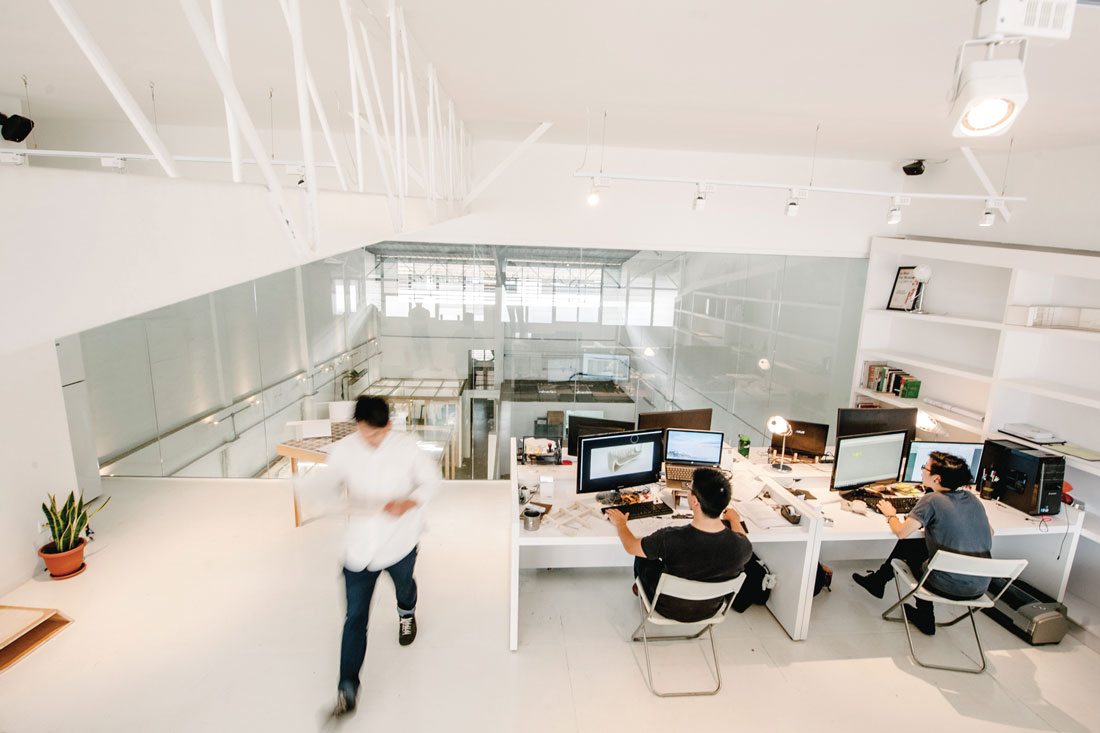
-
17 October 2019
For INDE.Awards 2019 The Design Studio winner Produce, design is inseparable from fabrication. It is not a studio built on established category, rather it runs and thrives on the pursuit of discovery.
.
“The original meaning of the word ‘architect’ was ‘master builder’. But today, we rely heavily on fabricators and engineers to resolve and translate that vision to reality. That wasn’t ideal for me,” says Singaporean architect Pan Yi Cheng. “That’s not how I was trained either,” he adds.
Trained at Architectural Association’s School of Architecture, Pan is the Founder and Creative Director of Produce, the winner of INDE.Awards 2019’s The Design Studio award. The category honours the practice that thinks forward, creates voraciously and changes perceptions in architecture, design or both.
He graduated from the school in 2006 and spent four years working at TP Bennett in London and UNStudio in Amsterdam before coming home to Singapore. It was during this first few years of returning and working in Singapore that he experienced the disjunction between designers and fabricators.
.
“The original meaning of the word ‘architect’ was ‘master builder’. But today, we rely heavily on fabricators and engineers to resolve and translate that vision to reality. That wasn’t ideal for me.”
Pan Yi Cheng
.
“Your design can only be as complex as the fabricator’s ability to translate it into production,” Pan shares. He calls this a broken telephone workflow, where at best the finished product is a shadow of the original design intent and at worst, phased out because of the production cost.
The price of getting things made locally in Singapore was exorbitant. “I went to London to search for fabricators and found out that their price was almost half of that in Singapore. That struck me,” he recalls, “I realised that because of the presence of multiple workshops, fabricators, prototypers, there is a healthy competition that would drive the prices down.”
Pan established Produce in 2013 with five friends – two designers and three investors – and a three-axis CNC machine in Eunos, an industrial estate in Singapore populated by suppliers and fabricators. At that time, Produce was the only design company that owns its own prototyping workshop in the city-state.
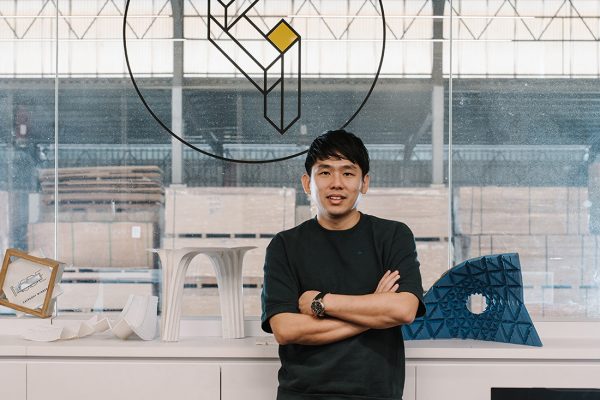
Pan Yi Cheng, Creative Director of Produce. Photo by Khoo Guo Jie
Produce is all about the integration of designing and making, and the pursuit of discovery. And Pan pretty much modelled the company after design school environment.
“Almost every university with a design programme has a workshop. Whether the curriculum requires the student to use them is a different matter, but it gives access to facilities where we could prototype, experiment, learn from those processes and then build them into your design process, which is what we do at Produce,” he explains.
By doing this, Produce has shifted a substantial portion of the design process to the front, which minimises surprises at the later stages of production that often resulted in delays and abortive works, reduce cost and manhours, and opens up possibilities for new construction methods.
Produce also has better control of material conservation and insight on how things will pan out onsite, streamlining not only the production process but also the fabrication and installation processes.
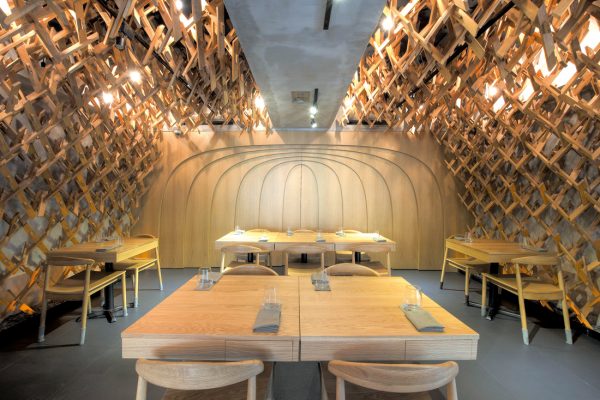
Herman Miller Showroom at Xtra Park Mall. Photography: Derrick Lim
This was apparent in the studio’s seminal project, the Herman Miller Showroom at Xtra Park Mall, which was constructed from 4,000 parts. The project set the tone for Produce’s future projects.
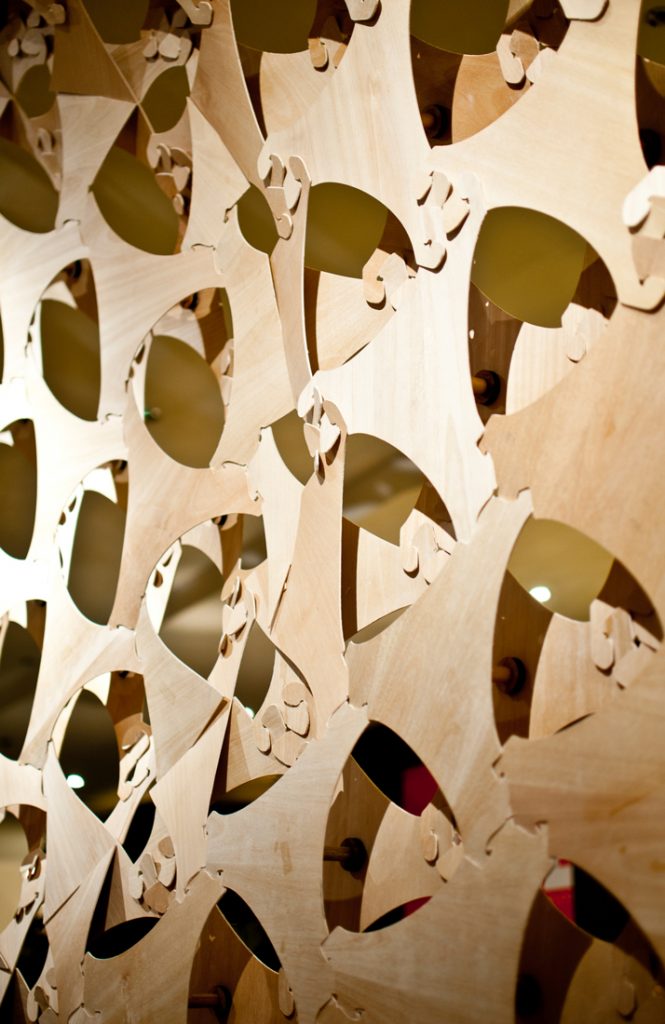
Detail of the interlocking lapping joint system developed for Xtra Park Mall. Photo: Produce
In 2016, the Eunos estate was zoned as a residential area, and Produce was asked to move. “That was a good time to reflect on what we had and how to move forward,” says Pan. Finding a place near the city centre would have been ideal, but impossible because of the premium rent.
Produce considered splitting the studio and the workshop to sustain it. Then one of its longtime collaborators, the material company Panelogue, came to the rescue. Together Produce and Panelogue established a digital fabrication workshop called Superstructure.
Today, Produce, Superstructure and Pan’s newly established architecture practice Type 0 architecture inhabit the same facility at Sungei Kadut Industrial Estate and work synergistically as a collective. Superstructure and the machines occupy one area while Produce’s work area loosely merges with Type 0’s on another.
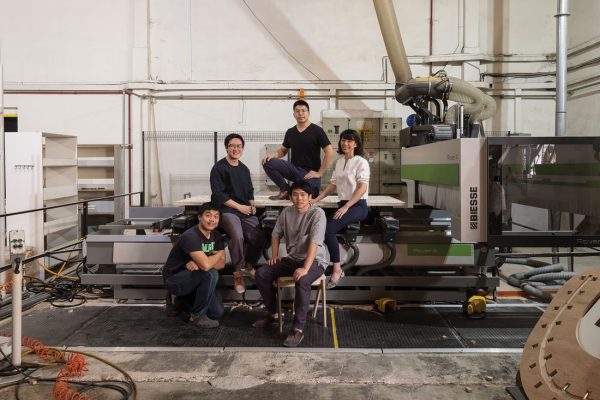
Produce and Superstructure team. Photo by Daniel Chia
“How we work is tutorial-based,” shared Pan. He would give one-on-one consultation and gather people for brainstorming and let them disperse to work on the project. The Produce team try to have a very technical approach whenever they can, and building physical models of the building is still a must.
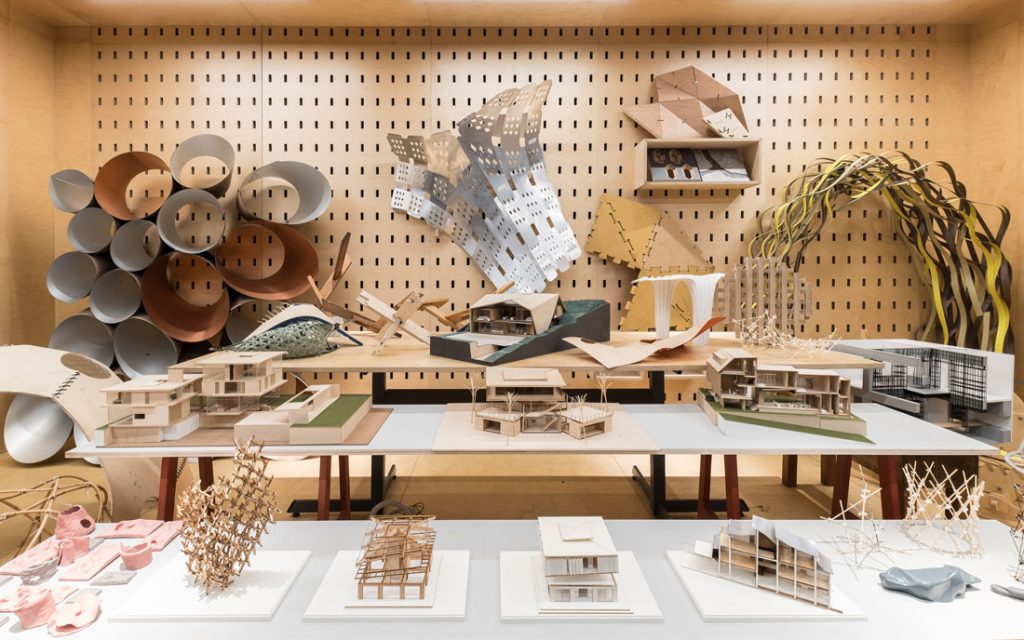
Models by Produce. Photo by Daniel Chia
Produce’s list of accolades has also grown. Its second iteration for Xtra’s Herman Miller shop-in-shop at Marina Square, titled Fabricwood, won the title of World Interior of the Year at INSIDE World Festival of Interiors 2017. Inspired by Eames’ moulded plywood chairs, Produce designed a lightweight plywood envelope that casually arches over the eight-metre span of Xtra’s Marina Square showroom.
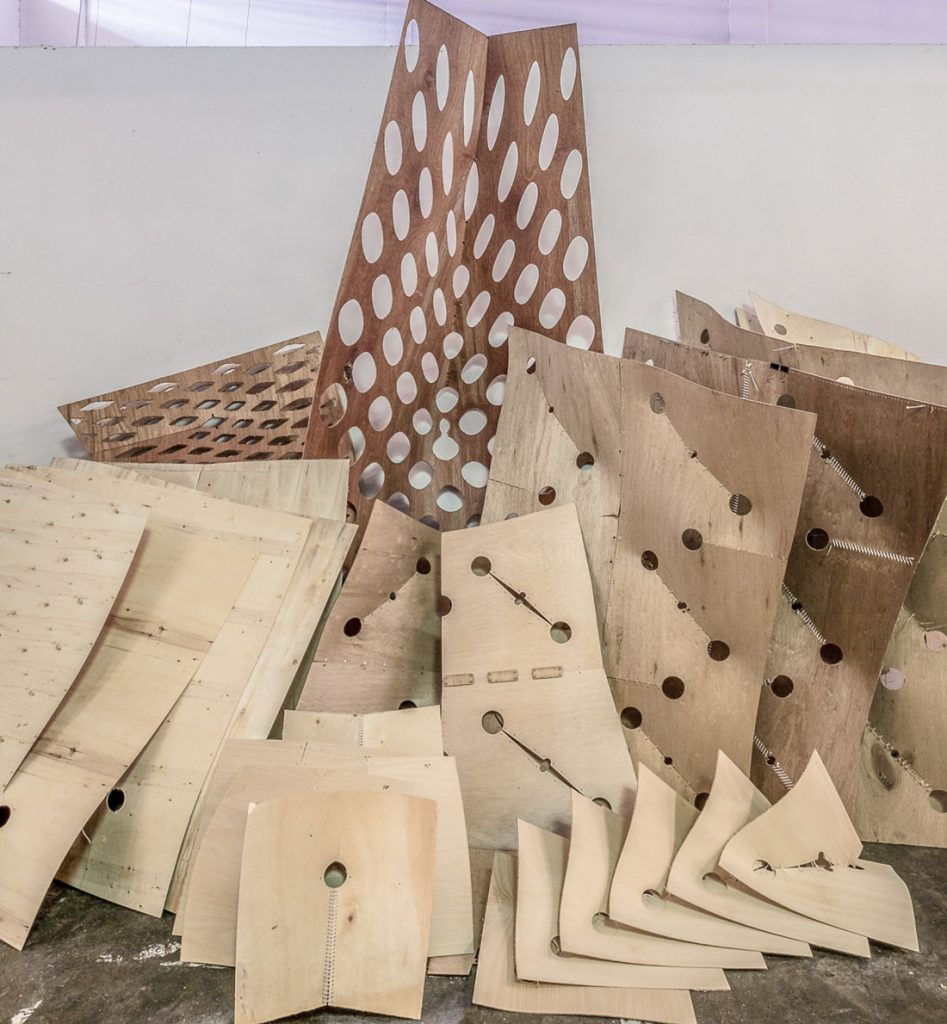
Fabricwood modules. Photo by Produce
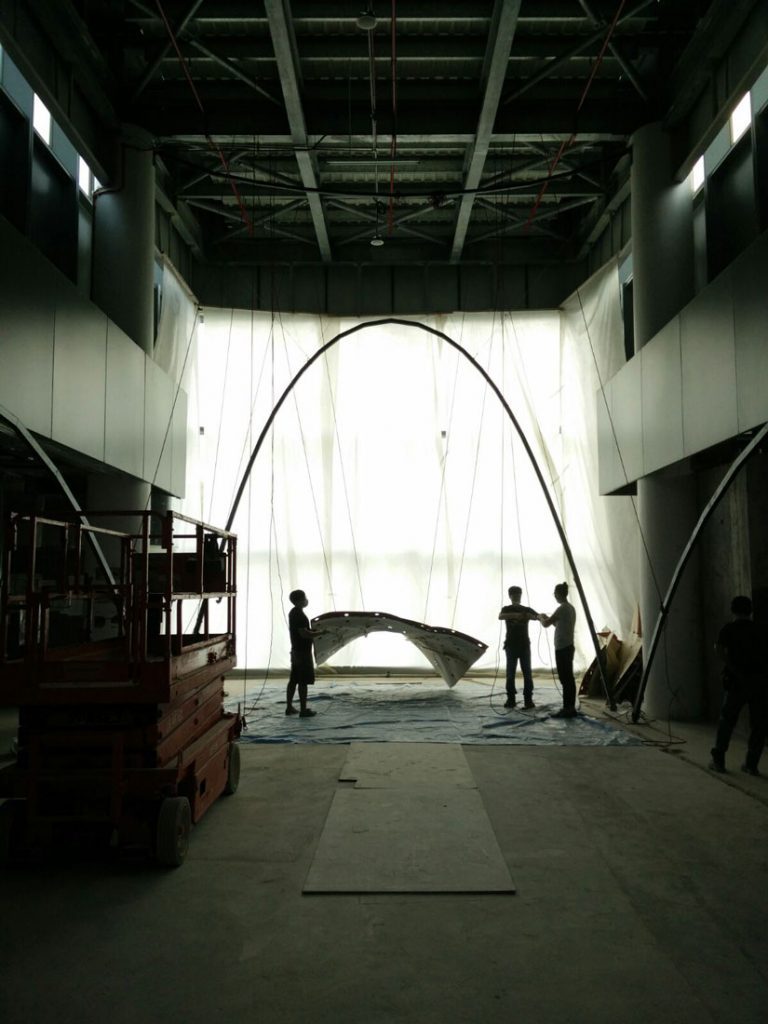
Fabricwood installation. Photo by Produce
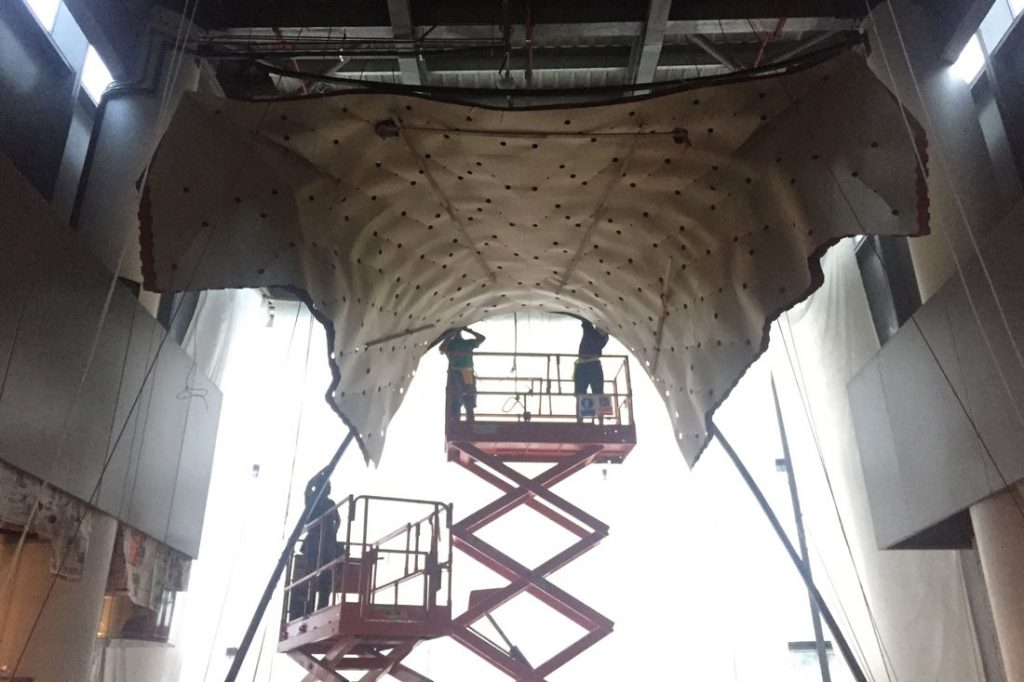
Fabricwood installation. Photo by Produce
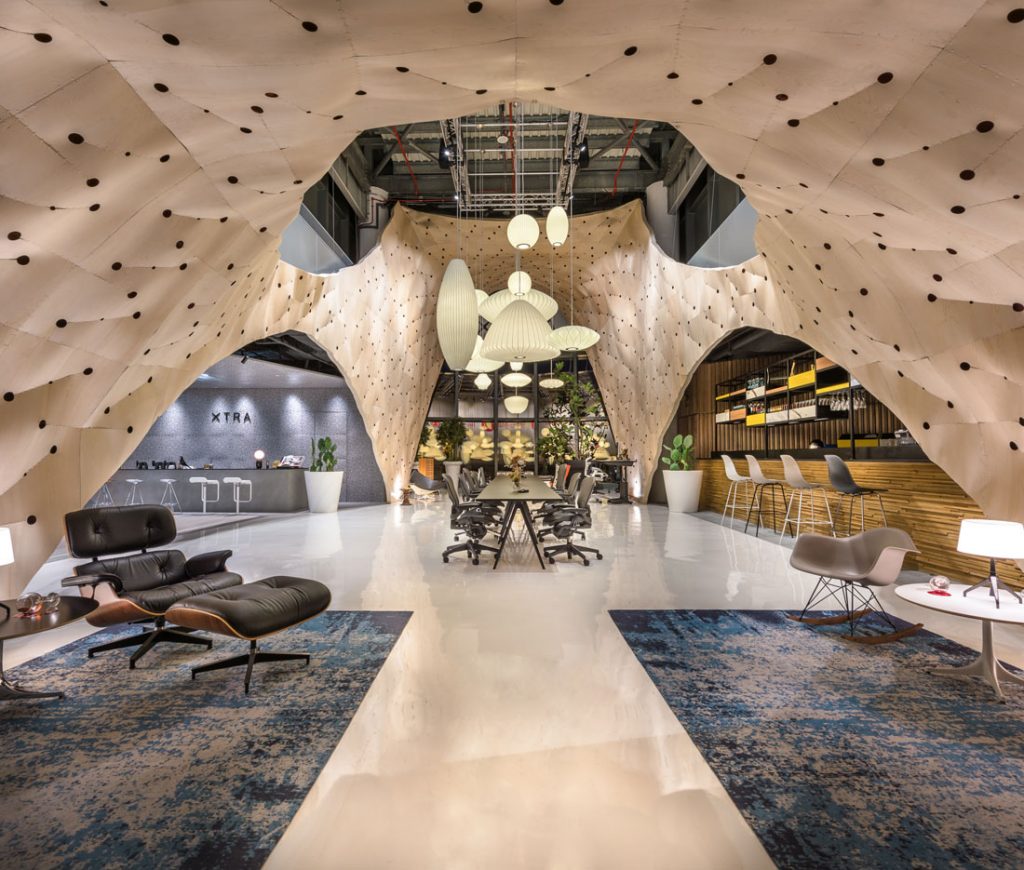
Fabricwood, Herman Miller shop in shop at Xtra Marina Square. Photo by Edward Hendricks
The next move for Produce is to create more thread between the services and products the studio can produce. There was a discussion about opening the collective’s workshop and giving lessons to the members of the public, as well as packaging the systems the studio has built into commercial, b2b products. But for now, the team is happy to have a steady flow of good projects to fuel its R&D.
With its voracious creativity and steady pursuit of discovery, it is no wonder that Produce is not only INDE.Awards 2019’s The Studio winner, it is also the Best of the Best winner this year.
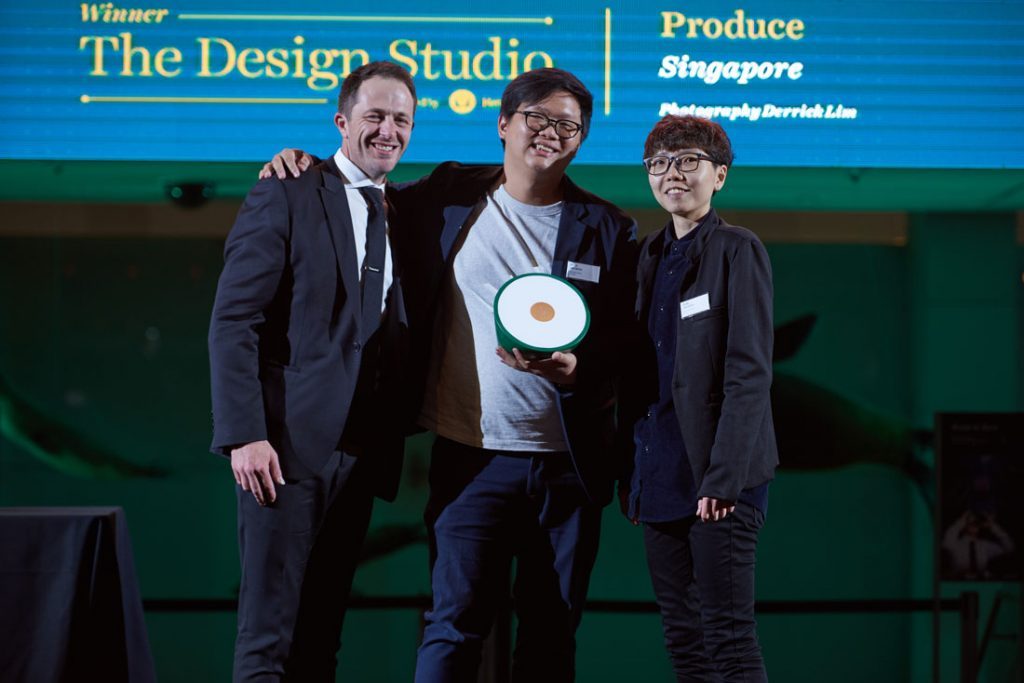
Liam Nicholls, Daniel Chia and Teo Xiao Wei on stage at INDE Gala. Photo by Einwick
Receiving The Design Studio Awards at the INDEs 2019 Gala in Melbourne were Produce team members Daniel Chia and Teo Xiao Wei. The award was presented by INDE.Awards The Studio Partner Herman Miller by Liam Nicholls, Market Manager at Herman Miller Australia.
.
Thank you to Herman Miller – The Design Studio partner of the INDE.Awards 2019 – for supporting Indo-Pacific’s most progressive practices.
Words: Asih Jenie.
